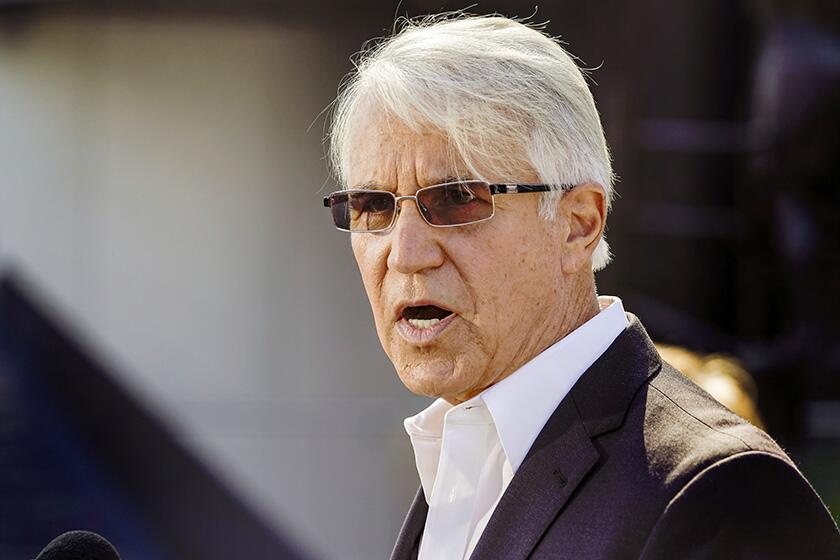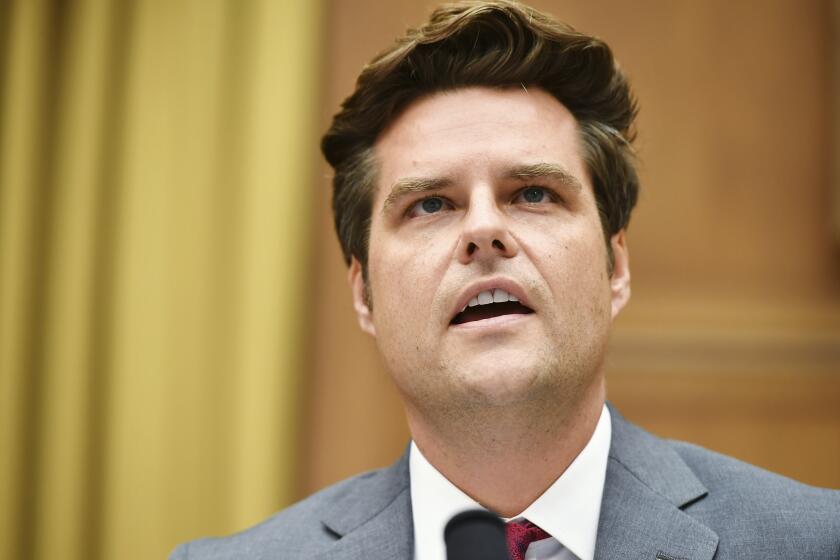Ban medical marijuana? Sure you will ...
Medical marijuana law is as twisted as the ends of a Canna Sutra spleef, so the Los Angeles City Council aims to act Tuesday to free the City of Angels from all the confusion and make our kids safe from designer cannabis. There’s only one problem with the council’s foolproof plan, dreamed up by Councilman Jose Huizar and backed by law-and-order City Atty. Carmen Trutanich: It can’t possibly work.
A little trip through recent Los Angeles history should smoke out the reasons it doesn’t make a lot of sense to impose a blanket ban on storefront marijuana dispensaries, as Huizar and Trutanich intend. L.A.’s efforts so far to exert a measure of control over the chaos of pot dispensaries, which have bloomed across town like, well, weeds, have been an embarrassing failure. The city’s landmark medical marijuana ordinance of January 2010 was met with a flood of litigation, as were similar attempts by other cities to regulate pot outlets. L.A.’s plan was to limit the number of dispensaries that could be allowed to operate and put heavy restrictions on their location, barring them from opening near schools, parks, libraries, etc. The courts responded to these assorted municipal ordinances with a series of confusing and sometimes contradictory rulings, but the one most devastating to City Hall was Pack vs. Superior Court, decided by the state’s 2nd District Court of Appeals in October 2011.
The case actually targeted the city of Long Beach, which had enacted a marijuana ordinance almost identical to L.A.’s -- and which, the court determined, was illegal. The gist of Pack was that, because marijuana is banned under the federal Controlled Substances Act, cities can’t enact laws that permit or authorize pot dispensaries, only that restrict their activities. Further, Pack forbids cities from putting a cap on the number of dispensaries or determining which ones are permitted via lottery, a fundamental part of what Los Angeles wanted to do.
PHOTOS: L.A.’s marijuana dispensaries by type
Well, fine, said the city’s anti-marijuana pols; if we can’t control pot shops, let’s ban them altogether -- or at least forbid them until there is a comprehensive court blueprint on what can be done and what can’t. Huizar’s ordinance to make that happen is coming up for a vote on Tuesday. The trouble is, another recent court ruling has already rendered it moot.
Early this month, the 2nd District Court of Appeal -- the same court that decided Pack -- overturned Los Angeles County’s ban on medical marijuana dispensaries. Banning these retail outlets “directly contradicts the Legislature’s intent,” wrote Justice Robert Mallano for the court, in a unanimous decision by the three-justice panel. That’s because when the Legislature enacted the Medical Marijuana Program Act starting in 2004, it authorized places where medical marijuana could be distributed and shielded them from municipal ordinances that target public nuisances. In its original wording, this act didn’t include the word “dispensaries,” but, according to Mallano, wording in a section added later specifically protected any “medical marijuana cooperative, collective, dispensary, operator, establishment or provider.”
The law on all of this remains unsettled, and key cases will probably soon find their way to the California Supreme Court. Yet it would be more than a little odd for the city of L.A. to approve its ban on dispensaries just weeks after an appeals court ruled that it was illegal for the county of L.A. to do the exact same thing. More lawsuits? You bet.
The Times editorial page has said it before, but it can’t hurt to say it again: Waiting for the courts to resolve these problems is a bad idea. The state Legislature should step in with a new act that clarifies California’s medical marijuana laws. L.A.’s City Council, meanwhile, should just chill for a while.
ALSO:
How about a No More Assault Rifles Act of 2012?
America’s prosperity requires a level playing field
Subscribe to Dan Turner on Facebook
More to Read
A cure for the common opinion
Get thought-provoking perspectives with our weekly newsletter.
You may occasionally receive promotional content from the Los Angeles Times.










